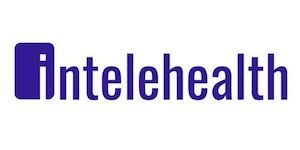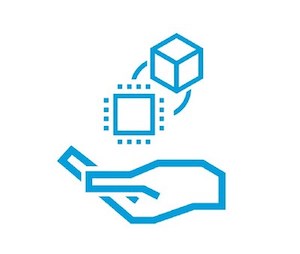 The server and mobile industries know open source well. But open source isn't just about the technology. First and foremost, open source is about sharing, and if there's one thing people love to share more than anything, it's self-expression in the form of art. Whether you consider yourself an artist or not, you can foster your own creativity with open source applications, and possibly end up with something you're proud to share with others. Here are 26 applications in seven different artistic categories to help you act on your every inspiration.
The server and mobile industries know open source well. But open source isn't just about the technology. First and foremost, open source is about sharing, and if there's one thing people love to share more than anything, it's self-expression in the form of art. Whether you consider yourself an artist or not, you can foster your own creativity with open source applications, and possibly end up with something you're proud to share with others. Here are 26 applications in seven different artistic categories to help you act on your every inspiration.
open source software
See the following -
2022 HL7 Working Group Meeting Continues to Advance a Public Health Agenda
 The HLN Consulting team attended the HL7 36th Annual Plenary & Working Group Meeting (WGM) held in Baltimore, MD, September 17 – 23, 2022. More than 500 attendees, representing all aspects of the industry, were a part of the WGM in-person meeting after 2 years of virtual meetings. The seven day event started on Saturday with a weekend connectathon. This meeting offered an opportunity for attendees to come together and collaborate. It was a valuable meeting especially for people involved in standards development around healthcare. Read More »
The HLN Consulting team attended the HL7 36th Annual Plenary & Working Group Meeting (WGM) held in Baltimore, MD, September 17 – 23, 2022. More than 500 attendees, representing all aspects of the industry, were a part of the WGM in-person meeting after 2 years of virtual meetings. The seven day event started on Saturday with a weekend connectathon. This meeting offered an opportunity for attendees to come together and collaborate. It was a valuable meeting especially for people involved in standards development around healthcare. Read More »
- Login to post comments
Diverse Open Source Uses Highlight Need For Precision In Cyber Resilience Act
 As the European Cyber Resilience Act (CRA) is entering into the final legislative phase, it still has some needs arising from framing by the Commission or Parliament that result in breakage no matter how issues within its scope are “fixed”. Here’s a short list to help the co-legislators understand the engagement from the Open Source community...OSI and the experts with whom they engage are not trying to get all of Open Source out of scope as maximalist lobbyists do for other aspects of technology. An exclusion from the regulation for Open Source software per se would open a significant loophole for openwashing. But the development of Open Source software in the open needs to be excluded from scope just as the development of software in private is. Our goal in engaging is just to prevent unintentional breakage while largely embracing the new regulation.
As the European Cyber Resilience Act (CRA) is entering into the final legislative phase, it still has some needs arising from framing by the Commission or Parliament that result in breakage no matter how issues within its scope are “fixed”. Here’s a short list to help the co-legislators understand the engagement from the Open Source community...OSI and the experts with whom they engage are not trying to get all of Open Source out of scope as maximalist lobbyists do for other aspects of technology. An exclusion from the regulation for Open Source software per se would open a significant loophole for openwashing. But the development of Open Source software in the open needs to be excluded from scope just as the development of software in private is. Our goal in engaging is just to prevent unintentional breakage while largely embracing the new regulation.
- Login to post comments
11 Ways To Get Involved With Humanitarian FOSS
 Lending a digital hand for humanitarian projects is just a click away. Whether you have five minutes or a few hours, you can make a difference with a variety of Humanitarian Free and Open Source Software (HFOSS) projects. The level of skills required vary from web search, verification, mapping, translation, training, and open source software development. Along the journey of changing the world, you can meet like minds and hone your skills. The key is to ask yourself: What do I want to do? How can I get started? How can I find the right project and community?
Lending a digital hand for humanitarian projects is just a click away. Whether you have five minutes or a few hours, you can make a difference with a variety of Humanitarian Free and Open Source Software (HFOSS) projects. The level of skills required vary from web search, verification, mapping, translation, training, and open source software development. Along the journey of changing the world, you can meet like minds and hone your skills. The key is to ask yourself: What do I want to do? How can I get started? How can I find the right project and community?
- Login to post comments
26 open source creative apps to try in 2022
- Login to post comments
5 Ways to Invigorate Education with Raspberry Pi
 Recently I was invited to talk to a group of eighth grade students about the Raspberry Pi. Of the 15 students and three teachers there, only a few had heard of the Raspberry Pi. None had ever held one in their hand, nor did they know how to set one up or even where to look for information to do so. I spent 40 minutes talking to them and inviting them to explore the Raspberry Pi and the wealth of high-quality, open source software that comes with it. They were energized and eager to learn more...I think something needs to be done, so I am inviting fellow open source advocates to join me in making minor investments in their communities to move the ball forward.
Recently I was invited to talk to a group of eighth grade students about the Raspberry Pi. Of the 15 students and three teachers there, only a few had heard of the Raspberry Pi. None had ever held one in their hand, nor did they know how to set one up or even where to look for information to do so. I spent 40 minutes talking to them and inviting them to explore the Raspberry Pi and the wealth of high-quality, open source software that comes with it. They were energized and eager to learn more...I think something needs to be done, so I am inviting fellow open source advocates to join me in making minor investments in their communities to move the ball forward.
- Login to post comments
6 Ways Programmers from Underrepresented Countries Can Get Ahead
 Becoming a programmer from an underrepresented community like Cameroon is tough. Many Africans don't even know what computer programming is-and a lot who do think it's only for people from Western or Asian countries. I didn't own a computer until I was 18, and I didn't start programming until I was a 19-year-old high school senior, and had to write a lot of code on paper because I couldn't be carrying my big desktop to school. I have learned a lot over the past five years as I've moved up the ladder to become a successful programmer from an underrepresented community. While these lessons are from my experience in Africa, many apply to other underrepresented communities, including women.
Becoming a programmer from an underrepresented community like Cameroon is tough. Many Africans don't even know what computer programming is-and a lot who do think it's only for people from Western or Asian countries. I didn't own a computer until I was 18, and I didn't start programming until I was a 19-year-old high school senior, and had to write a lot of code on paper because I couldn't be carrying my big desktop to school. I have learned a lot over the past five years as I've moved up the ladder to become a successful programmer from an underrepresented community. While these lessons are from my experience in Africa, many apply to other underrepresented communities, including women.
- Login to post comments
Advancing 'Health for All' through Telemedicine: Intelehealth joins Digital Public Goods Alliance
 Intelehealth was added to the Digital Public Goods Alliance DPG Registry last week. This underscores Intelehealth's commitment to developing and championing digital public goods that will help achieve 'Health for All' and contribute to the Sustainable Development Goals (SDGs). Intelehealth is a non-profit delivering high-quality healthcare for the last -mile population where there is no doctor through telemedicine. Using our open-source technology platform that's driven by an innovative digital health assistant, we connect patients and frontline health workers at the last mile with qualified doctors, diagnostics & medications.
Intelehealth was added to the Digital Public Goods Alliance DPG Registry last week. This underscores Intelehealth's commitment to developing and championing digital public goods that will help achieve 'Health for All' and contribute to the Sustainable Development Goals (SDGs). Intelehealth is a non-profit delivering high-quality healthcare for the last -mile population where there is no doctor through telemedicine. Using our open-source technology platform that's driven by an innovative digital health assistant, we connect patients and frontline health workers at the last mile with qualified doctors, diagnostics & medications.
- Login to post comments
Affordable COVID-19 Diagnoses for Hospitals: How Open Source Software Helps
 The most common COVID-19 symptoms—such as coughing, fever, and shortness of breath—are shared with many other diseases. Diagnosing a patient accurately is therefore a challenge. Although a diagnosis of COVID-19 might not affect treatment, it would help a hospital predict a patient's trajectory and anticipate the need for urgent intervention. But current tests, relying on blood or mucus samples, are not particularly accurate. In this article, we'll see how open source software can help hospitals make better diagnoses. I'll concentrate on one specific role, and on the ways open source facilitates finding a solution and keeping it affordable. Many aspects of the problem feed into the solution discussed here. The article is based on work by researcher Trevor Grant.
The most common COVID-19 symptoms—such as coughing, fever, and shortness of breath—are shared with many other diseases. Diagnosing a patient accurately is therefore a challenge. Although a diagnosis of COVID-19 might not affect treatment, it would help a hospital predict a patient's trajectory and anticipate the need for urgent intervention. But current tests, relying on blood or mucus samples, are not particularly accurate. In this article, we'll see how open source software can help hospitals make better diagnoses. I'll concentrate on one specific role, and on the ways open source facilitates finding a solution and keeping it affordable. Many aspects of the problem feed into the solution discussed here. The article is based on work by researcher Trevor Grant.
- Login to post comments
Agricultural Biotechnology 'Should Be Open Source'
Open source biotechnology, through which biotechnology inventions are made freely available for others to use and improve upon, could help developing countries overcome hurdles created by stringent intellectual property rights (IPRs), a study says. Read More »
- Login to post comments
Amida Releases New Blue Button Software Component
Amida is pleased to announce the release of its first product, a Blue Button branded software component that supports the aims of the Blue Button Initiative, a nationwide public-private effort to enable patients and consumers to gain easy access to their own health information. Amida's Data Reconciliation Engine (DRE) is the first production-ready, format-agnostic open source health record interface in the health IT market...
- Login to post comments
Anatomy of a Public Health Open Source Project: HLN's Immunization Calculation Engine (ICE)
 An immunization information system (IIS) aggregates immunization information for children (and some adults) living or receiving immunization services in a jurisdiction. One of the core components of an IIS is its immunization evaluation and forecasting system: the computerized algorithm that is used to determine if vaccine doses that were administered to the patient are clinically valid (evaluation) and to project what doses are due now and in the future (forecasting). These algorithms are used to support clinical decision support (CDS) at the point of care and also to help public health agencies understand and manage the immunization status of whole populations.
An immunization information system (IIS) aggregates immunization information for children (and some adults) living or receiving immunization services in a jurisdiction. One of the core components of an IIS is its immunization evaluation and forecasting system: the computerized algorithm that is used to determine if vaccine doses that were administered to the patient are clinically valid (evaluation) and to project what doses are due now and in the future (forecasting). These algorithms are used to support clinical decision support (CDS) at the point of care and also to help public health agencies understand and manage the immunization status of whole populations.
- Login to post comments
Artificial Intelligence and Machine Learning Bias has Dangerous Implications
 Algorithms are everywhere in our world, and so is bias. From social media news feeds to streaming service recommendations to online shopping, computer algorithms—specifically, machine learning algorithms—have permeated our day-to-day world. As for bias, we need only examine the 2016 American election to understand how deeply—both implicitly and explicitly—it permeates our society as well. What’s often overlooked, however, is the intersection between these two: bias in computer algorithms themselves. Contrary to what many of us might think, technology is not objective...
Algorithms are everywhere in our world, and so is bias. From social media news feeds to streaming service recommendations to online shopping, computer algorithms—specifically, machine learning algorithms—have permeated our day-to-day world. As for bias, we need only examine the 2016 American election to understand how deeply—both implicitly and explicitly—it permeates our society as well. What’s often overlooked, however, is the intersection between these two: bias in computer algorithms themselves. Contrary to what many of us might think, technology is not objective...
- Login to post comments
Bahmni, OpenMRS recognized as Digital Public Goods by Digital Public Goods Alliance
 Bahmni, an open source Electronic Medical Record (EMR) governed by the Bahmni Coalition, was added to the Digital Public Goods Alliance's DPG Registry. ThoughtWorks, a global software consultancy is part of the Bahmni Coalition's core governing committee and was instrumental in conceiving and building Bahmni during its early years. The Digital Public Goods Alliance (DPGA) and its registry promotes digital public goods in order to create a more equitable world. To become a digital public good, projects are required to meet the DPG Standard ensuring they truly encapsulate open-source principles. Bahmni is one of only 23 projects deemed digital public goods out of more than 500 nominations. The Hospital Information System (HIS) and EMR is a seamless integration of three critical systems: patient medical records, laboratory management and billing. Bahmni has been built on top of OpenMRS, OpenELIS, OpenERP and cm4Chee, an OSS Radiology PACS Server - to be a user-intuitive system customized for use in low-resource areas with limited bandwidth and infrastructure.
Bahmni, an open source Electronic Medical Record (EMR) governed by the Bahmni Coalition, was added to the Digital Public Goods Alliance's DPG Registry. ThoughtWorks, a global software consultancy is part of the Bahmni Coalition's core governing committee and was instrumental in conceiving and building Bahmni during its early years. The Digital Public Goods Alliance (DPGA) and its registry promotes digital public goods in order to create a more equitable world. To become a digital public good, projects are required to meet the DPG Standard ensuring they truly encapsulate open-source principles. Bahmni is one of only 23 projects deemed digital public goods out of more than 500 nominations. The Hospital Information System (HIS) and EMR is a seamless integration of three critical systems: patient medical records, laboratory management and billing. Bahmni has been built on top of OpenMRS, OpenELIS, OpenERP and cm4Chee, an OSS Radiology PACS Server - to be a user-intuitive system customized for use in low-resource areas with limited bandwidth and infrastructure.
- Login to post comments
Bio-Linux: A Stable, Portable Scientific Research Linux Distribution
 Bio-Linux was introduced and detailed in a Nature Biotechnology paper in July 2006. The distribution was a group effort by the Natural Environment Research Council in the UK. As the creators and authors point out, the analysis demands of high-throughput "-omic" (genomic, proteomic, metabolomic) science has necessitated the development of integrated computing solutions to analyze the resultant mountains of experimental data. From this need, Bio-Linux was born. The distribution, according to its creators, serves as a "free bioinformatics workstation platform that can be installed on anything from a laptop to a large server." The current distro version, Bio-Linux 8, is built on an Ubuntu 14.04 LTS base. Thus, the general look and feel of Bio-Linux is similar to that of Ubuntu.
Bio-Linux was introduced and detailed in a Nature Biotechnology paper in July 2006. The distribution was a group effort by the Natural Environment Research Council in the UK. As the creators and authors point out, the analysis demands of high-throughput "-omic" (genomic, proteomic, metabolomic) science has necessitated the development of integrated computing solutions to analyze the resultant mountains of experimental data. From this need, Bio-Linux was born. The distribution, according to its creators, serves as a "free bioinformatics workstation platform that can be installed on anything from a laptop to a large server." The current distro version, Bio-Linux 8, is built on an Ubuntu 14.04 LTS base. Thus, the general look and feel of Bio-Linux is similar to that of Ubuntu.
- Login to post comments
Biohacking Healthcare - Part 2
One of the most valuable research tools is a model of the type of problem you are trying to solve. This allows for study of the problem mechanism and allows attempts at solving various parts of the problem without disrupting an actual patient or when such is unavailable... Read More »
- Login to post comments